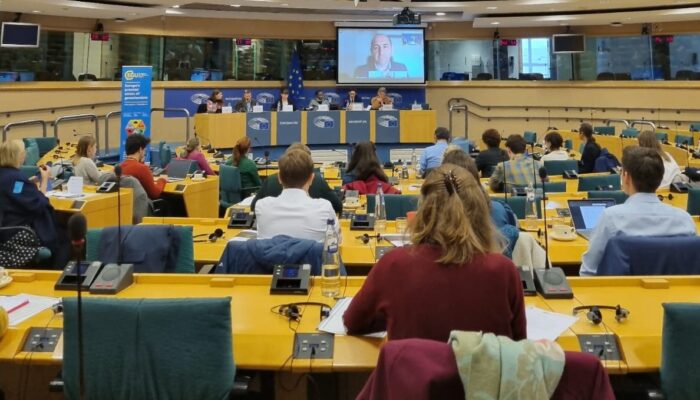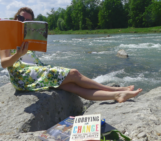
Science is a vital part of the policymaking process. It enables decision-makers to better understand the policy options that they have and the potential consequences of any actions or inaction. While it is just one factor that policymakers should consider during their decision-making process, it is an important one! This month’s GeoPolicy blog post will explore two different approaches that scientists can take to engage in the policymaking process: science advice and science activism. We will outline how these two approaches differ and why it is important for you to know and be transparent about which one you’re using.
Science Advice: Brokering knowledge
Science advice aims to provide policymakers with evidence-based information that is relevant to their work and in a format that they can use to support their decision-making. It involves:
- understanding the policy landscape;
- identifying the scientific evidence that is relevant to the policy issue;
- analysing and synthesising the information;
- considering the implications of the various policy options based on this information; and
- outlining the policy options available and their potential consequences in a format that is usable to the policymakers involved.
Ideally, science advice enables scientists to provide relevant information about a range of options while maintaining objectivity. It is then up to the policymaker to consider all of the various factors involved and make an informed decision that leads to the desired outcome. To ensure the most relevant information is included in this process, it’s important for those providing scientific advice to understand the policy landscape, upcoming legislations, and the needs of the policymakers involved. Collaborating with non-academic stakeholders including those working within policymaking institutions, non-governmental organisations, citizens, and industry representatives can help to understand this political landscape and the different aspects of the policy that you’re advising on. Furthermore, working with an interdisciplinary group of scientists when providing science advice will enable you to draw from a wider pool of knowledge, incorporate a diverse range of relevant information and ideas, reduce duplication and find areas of consensus. You can read more about how to establish strong and diverse scientific groups in this GeoPolicy blog post.
Science Activism: Engaging Hearts and Minds
Unlike science advice, science activism revolves around scientists and researchers actively advocating for specific causes or policy changes using research and scientific evidence. Rather than providing policymakers with a range of policy options, it seeks to reduce the scope of choice and encourage policymakers to take a specific policy pathway. Traditionally, the scientific community has aimed to approach topics and issues from an impartial perspective and consequently, many scientific institutions and organisations do not engage in science activism. However, more recently scientific groups such as Science Rebellion have gained significant traction by engaging in science activism. These groups have not only provided media outlets with scientific information but also successfully mobilised and motivated NGOs and members of the public to engage in policy issues related to climate change and biodiversity loss. They have also provided an outlet for scientists who feel science is not being adequately considered during political debates and discussions.
Choosing your science for policy pathway
When deciding on how you would like to engage with policymaking as a scientist, there is no right or wrong answer. Your engagement will depend on your motivation, skills, network, capacity, and the institutionalised policy pathway that you have access to! We need scientists who are willing to be advocates for particular issues and ensure that others within these advocacy spaces have accurate and useful scientific information. But we also really need scientists who are willing to provide impartial scientific information to policymakers when they need it. Another consideration is the experience and value that you can gain from the different types of engagement, as well as the time commitment required.
Understanding your role – and communicating it
It is vital that scientists who engage in policymaking both understand the role that they are playing (whether it be providing science advice or participating in science activism) and communicate it transparently. For the scientific community to maintain trust and legitimacy, we need to avoid engaging in “stealth issue advocacy”. Stealth issue advocacy occurs when researchers and scientific groups claim they are providing scientific advice and impartial scientific evidence when, in actuality, they are aiming to reduce the scope of policy options and encourage the policymaker to select one policy choice over another. Instead, scientists should be clear about the role they are playing when discussing policy-related issues with the media, public, and decision-makers. This doesn’t mean that you’re locked into one path or another, but you should be clear about what role you are playing at any given time.
What about the EGU?
The EGU aims to provide relevant, timely and useful scientific advice to European policymakers! But we also support those who participate in science activism by providing them with a platform to discuss relevant issues through our annual General Assembly and other conferences including the EuroScience Policy Forum on Science Activism that will take place on the 19-20th of October. While we need advocates for particular policy issues, it’s vital that we have a strong scientific community that is willing to engage in science advice and broker knowledge. There are few groups that can provide policymakers with this impartial input and there is a growing demand from policymakers in Europe who aim to create evidence-informed policies. As the EGU, we also aim to provide you with information about the institutionalised opportunities that exist for scientists to engage and provide science advice, as well as the resources that can support you in your science for policy journey!




